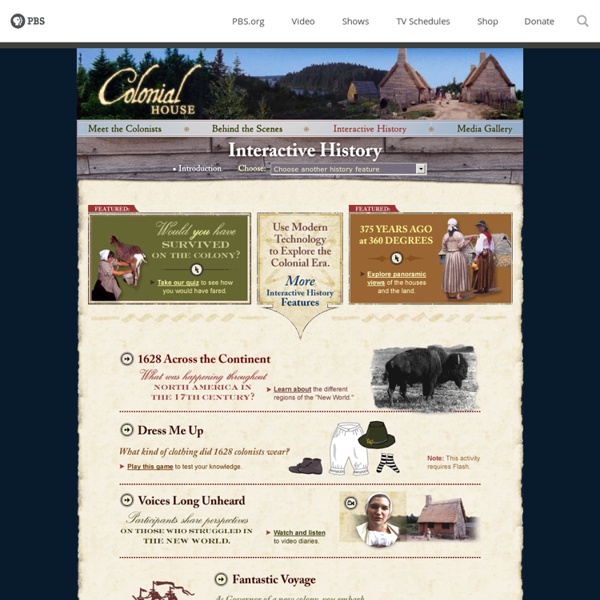



The Thirteen Colonies The 13 Colonies - good information about each state 50 States - current information, flags, some history Daily Life in the Colonies (Interactive) A Colonial Family and Community (Interactive) Food in Colonial Times Colonial Clothing (Interactive) 18th Century Clothing in Colonial Williamsburg Colonial Life - Meet the People Presidential Information An Outline of American History - The Colonial Times History Globe In 1606, some 105 adventurers set off from England to try and establish the first permanent English colony in the New World. They settled in what is now the state of Virginia and called their colony first James Fort, and then James Towne, in honor of James I, the King of England. The early years of the colony were nearly a total disaster. Almost half of the settlers died due to poor choices in settlement location, management of resources, and quarrels with the indigenous Powhatan Indians. You are the Captain of the Jamestown Colony: Can you do any better than the real colonists? You will have a copy of the London Company's Instructions to help guide you. Scoring Factors: After you make all your decisions, you will receive a report on the state of your colony based on these factors: Food: How well can you provide it for your colonists? Make History: You will get to compare your colony to the historical Jamestown at the end. Good luck and Godspeed!